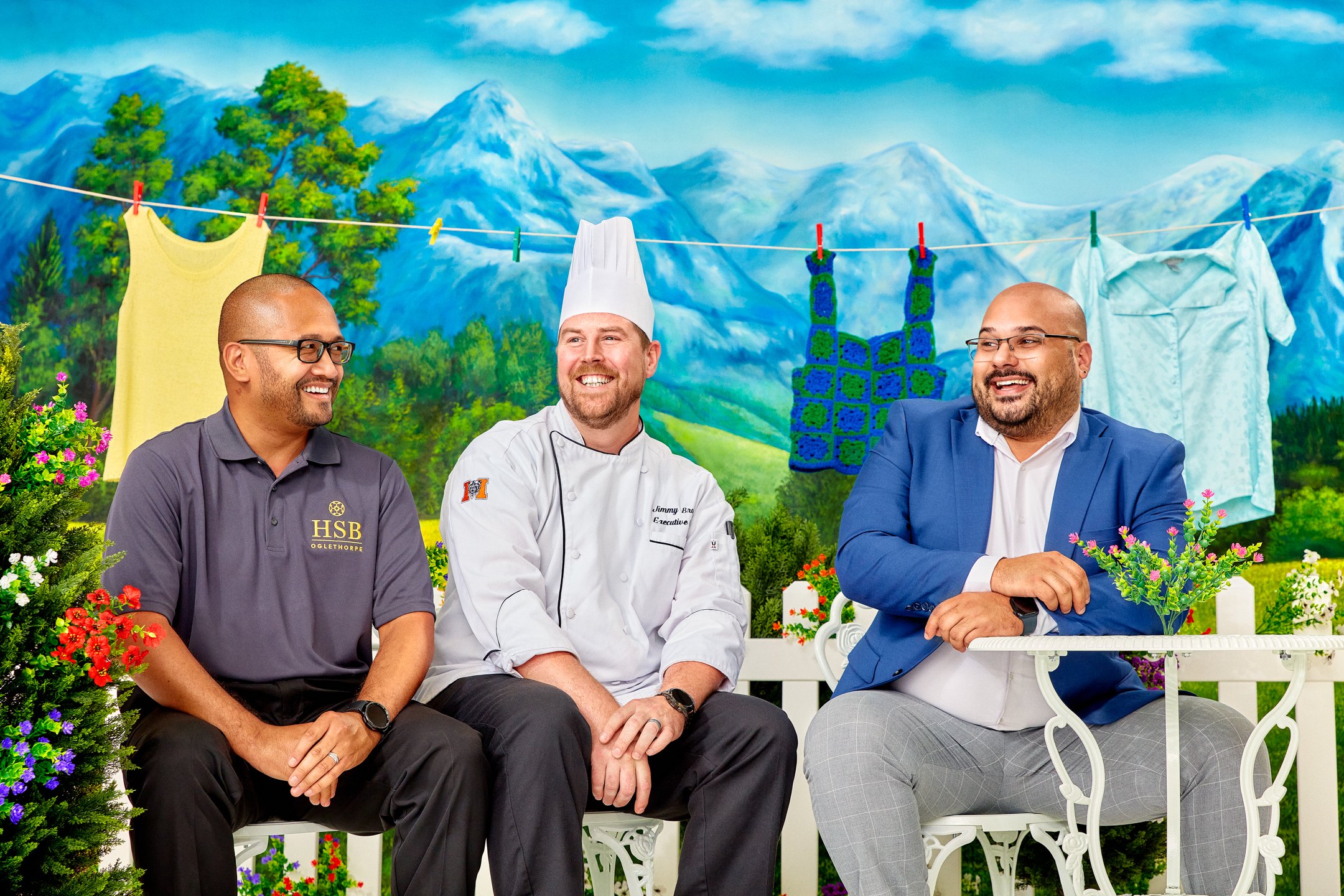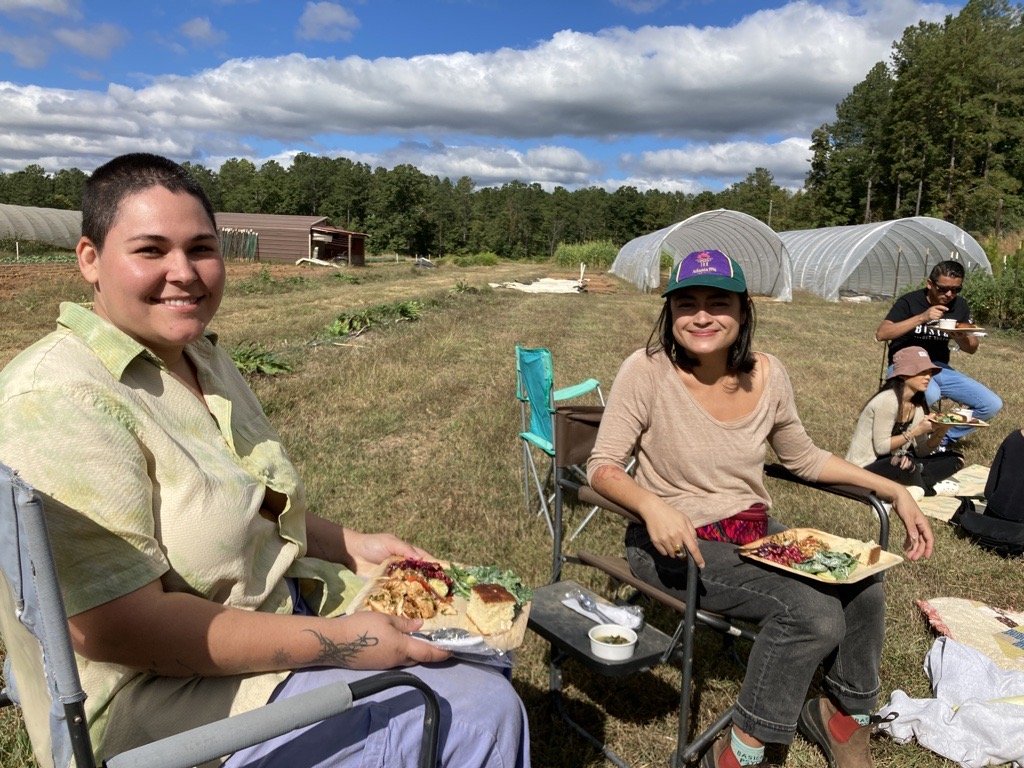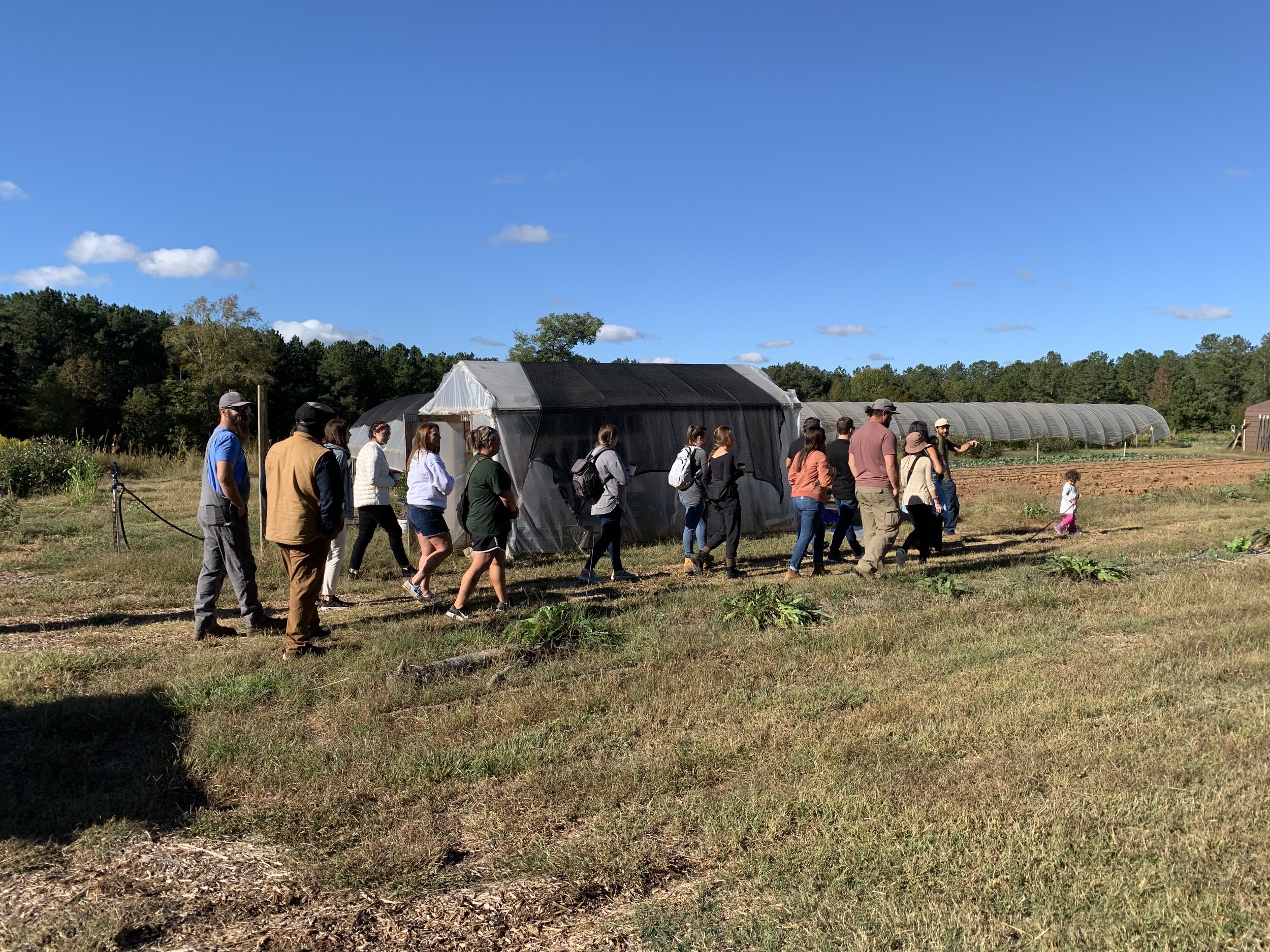Celebrating 5 Years of Impact: Georgia Organics’ Farmer Champion Program Strengthens Local Food Systems with Mushrooms, Awards, and Campus Partnerships
Written by Jamillah McWhorter, Procurement Fellow & Ever Williams, Farmer Champion Manager
The Georgia Organics’ Farmer Champion program is excited to wrap up its fifth season this winter and share what the team and participating Farmer Champions have been up to in 2024!
The Farmer Champion program at Georgia Organics was launched in 2019 and works to connect local farmers with the food service community and increase sustainable and organic purchasing. By highlighting businesses that source responsibly, the program aims to raise awareness about local sourcing and help Georgia’s diverse patchwork of small and organic farms thrive.
One of the main ways we spotlight these relationships is through our annual Farmer Champion Week, where participating businesses from the Farmer Champion program feature special limited-time only menu items. This year, chefs voted for mushrooms as the featured ingredient, and from September 6 – 13, served innovative, fun-gi dishes and cocktails with mushrooms sourced from The Horti-Culture, Bella Vita Mushrooms, Southern Cap Mushrooms, Shoots and Spores Farm, Green Box Produce, and Ellijay Mushrooms. We owe many thanks to our mushroom farmers—be sure to check out their websites!
The week kicked off with a Cast Iron & Collards Society event on September 5, hosted by beloved community partner, Argosy. Chef Cortney prepared an awesome mushroom-centric spread for attendees, featuring Wild Chantrelle Mushroom Risotto, Shitake Mushroom Croquettes, and a Mushroom Pizza with Oyster Mushrooms. DJ D2T played some amazing vinyl records while attendees made conversation and enjoyed the food.
Taken by Jamillah McWhorter at the Cast Iron and Collards Society Farmer Champion Week Kick Off Event
For the rest of the week, eaters across Georgia made it a point to dine with Farmer Champion restaurants, treating themselves to dishes such as the Bistec De Palomilla at La Semilla; the Veggie Patty Breakfast Sandwich at Kinship Butcher & Sundry; and Evergreen Butcher and Baker’s delicious Mushroom Danish to guests. To help eaters choose from the abundance of yummy options, the Farmer Champion Team created an interactive online map on the updated Farmer Champion week webpage for diners to reference as they made their dinner plans.
Bistec De Palomilla at La Semilla, The Veggie Patty Breakfast Sandwich at Kinship Butcher & Sundry, Mushroom Danish at Evergreen Butcher and Baker
We are also delighted to recognize our Farmer Champion Awardees! The Farmer Champion Awards are designed to honor businesses who are sourcing the highest percentages of local food. Twice a year, Farmer Champions submit two weeks of their food invoices and we calculate the percentage of their food that is procured locally. This year, 41 Farmer Champions collectively spent over $346,000 on local food in just four weeks, roughly 27% of their total food costs. Over the past five years, 58 farmer champions spent more than $1,487,000 on local food in 14 weeks. Four tiers (Partner, Bronze, Silver, Gold) shown in the graphic below represent the range of percentages of local sourcing.
The current tiers for businesses to participate in the Farmer Champion Program
In just four weeks, the seven selected 2024 Farmer Champion awardees spent 64% of their combined total food costs on local food! Congratulations to Dandelion Foods and Goods, Evergreen Butcher and Baker, Kinship Butcher and Sundry, Little Bear, Ry’s Table, and The Deer and the Dove. Additionally, in partnership with The Giving Kitchen, we recognized Twisted Soul Cookhouse and Pours and owner Chef Deborah Vantrece for contributing to their community far beyond local sourcing. Vantrece is an inspiring and active member of the Atlanta community – raising money for breast cancer research and frequently participating in fundraising events hosted by a variety of organizations focused on contributing to a resilient food system. To celebrate our winners, Chef Steven Satterfield of Miller Union graciously hosted the awardees and GO team members for a flavorsome dinner where they were presented with award plaques.
This year to expand the reach of the Farmer Champion program, we were also thrilled to honor four colleges and universities who are sourcing locally in their campus dining halls. We partnered with our friends at The Common Market Southeast through the ACRE Collective project to enroll our inaugural class of Farmer Champion Colleges and Universities. Agnes Scott College, Mercer University, Oglethorpe University and Spelman College are committed to serving their students local food at least $400/week on average and we’re happy to celebrate them for their efforts!
Emily Hennessee, GA ACRE Collective Project Manager, described the project as “centering on garnering food purchasing commitments from Atlanta-area anchor institutions, while shifting procurement to producers that share these institutions’ values...values-based food procurement is an opportunity for institutions to align their core values, like sustainability, equity, and corporate social responsibility, with their food purchasing. By incorporating food purchasing standards that align with core values, institutions can influence public health outcomes, boost regional economies, mitigate climate change, and improve racial equity via their food purchasing decisions.”
Finally, the awardees participated in a dazzling photoshoot by Tropico Photo to commemorate their 2024 achievements and we are excited to share some of the moments they captured below! To view more photos, please visit our Farmer Champion website.


Photos of FC Awardees by Tropico Photo
These vital partnerships between small-scale producers and buyers in a food system heavily dependent on conventional agriculture and imported goods takes perseverance, tenacity, patience, and mindfulness and it’s been a joy to strengthen Georgia’s local food movement alongside our partners in 2024. Thank you to all Farmer Champions for a banner year!

















































